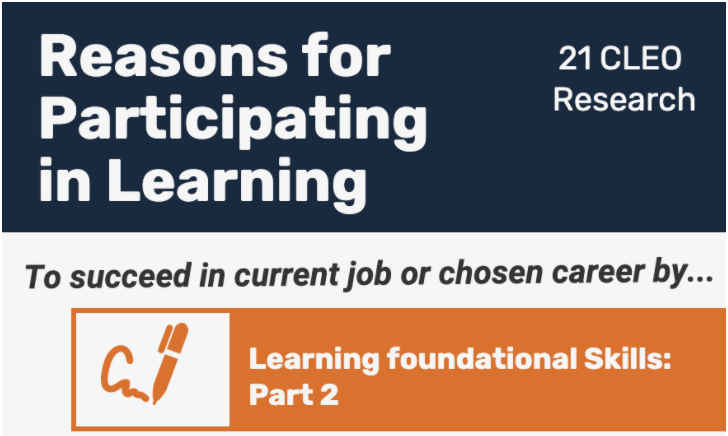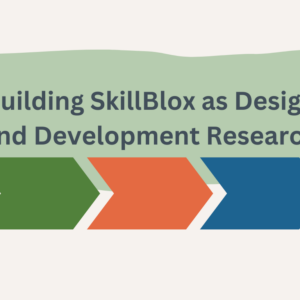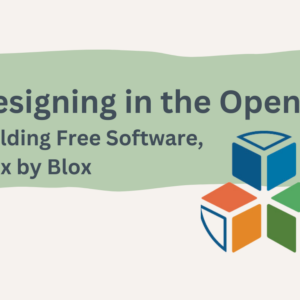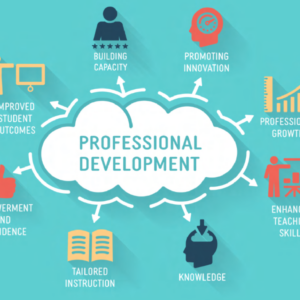By 21CLEO Research Team
Lately, we have been focused on the creation of personas, where aspects of real people are captured and blended in order to create one story that illustrates a broader representation of an end user of a technology or participant in a course. In past blogs we talked about how we are using persona as a research tool and our process for creating personas. In our last blog we described Alimayu, a college educated retail worker learning English. In the next several blogs we will continue to present the personas we have created based on our interviews with working learners.
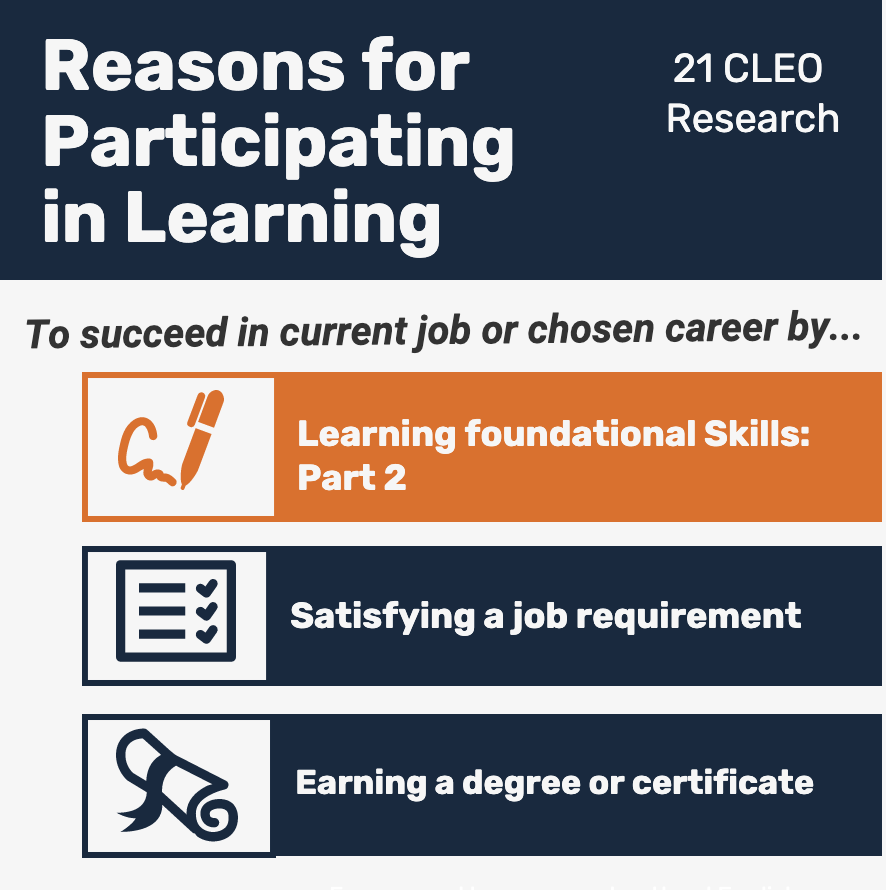
A Persona for Each Reason for Learning
Our interviews have made clear that working learners are not a monolith. They come from different backgrounds and have a wide variety of goals and reasons for participating in employer supported learning opportunities. Because our research centers the voices of working learners, it’s not sufficient for us to simply describe those reasons or the learning opportunities; rather, we rely on personas to present snapshots of the different participants we interviewed. The reasons they’ve identified for participating, as illustrated in figure 1, pictured above, include building foundational skills such as English language proficiency, satisfying a job requirement, or taking advantage of learning opportunities in order to earn a degree or certificate. This persona reflects someone engaged in learning to gain foundational skills. The goals of the learner represented in this persona, see figure 2, and the previous one are the same: to learn foundational skills. However, given the complexity of the working learners’ who hold front-line service jobs, there are of course important differences. Whereas the previous persona described someone with a 4 year college degree, this persona describes a person who has not yet completed a secondary credential. In our interviews, we found some additional differences between the two, including whether they worked in customer-facing positions or not, whether or not they were paid for their class time, and their confidence in their computer skills.
About Neberu: Working to feel comfortable interacting with English speakers
Like many frontline service workers, Neberu is working to improve his English skills as a foundational skill. Neberu works in a multi-business food court, where he is a full-time cook in one business and works part time as a prep cook in another business. Both are “back of the house” positions that don’t involve regular interaction with customers, but when those interactions are required, Neberu’s comfort communicating in English is taxed.
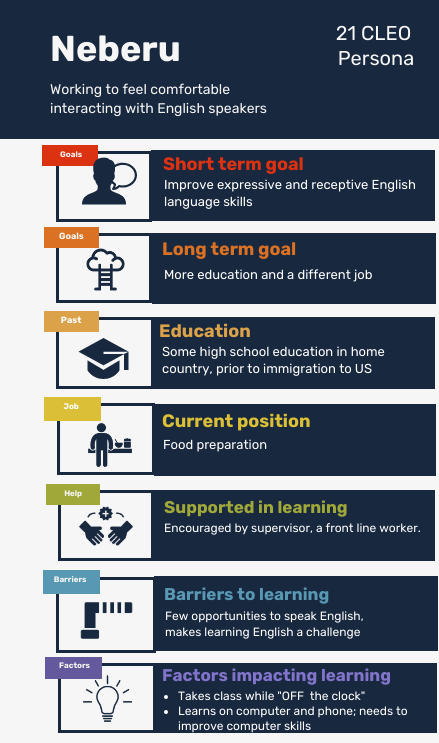
The managers of the food court have organized a weekly onsite English class for their employees as a way to support their upward movement into other jobs within the company, including front-of-the house positions that involve more opportunities to practice English. Neberu’s supervisors encourage him to attend and schedule his time so that he can attend the class during his off time. This means that he is not paid for his class time.
Neberu wants to improve his English skills as a stepping stone to a career, possibly his own business. He says that one of the barriers to his learning is that he has few opportunities to speak English at work. He wishes that the English class met more often and for a longer time.
Neberu learns English and other things on his own using a computer (he has wifi at home) and smartphone but wishes he had better computer skills. He demonstrates agency in his educational choices and devotes time to independent learning, even when he’s balancing many other responsibilities.
“I believe that learning is future. Never I stop. I always try.”
We look forward to continuing the conversation through your comments and connections. Read more about our 21st Century Learning Ecosystem Opportunities (21CLEO) research here.

